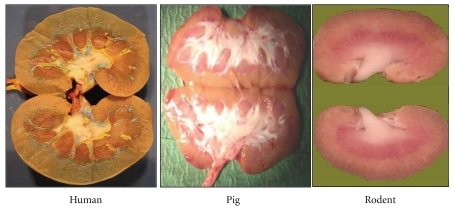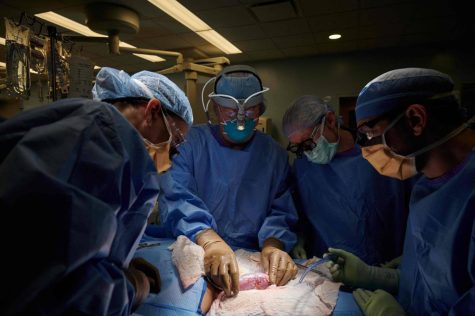Crisis for Organ Shortage Solved?: Pig Kidney Replaces Human Kidney for 54 Hours
October 28, 2021
In the US today, there currently sits over 100,000 Americans on a waitlist for an organ transplant. Livers, kidneys, skin, pancreases, lungs, intestines, and hearts- they’re all vital for human function and survival, but when they begin to fail or have been destroyed, replacements are needed. Though organ transplants have been occurring since the 1960s, the current problem resides in the fact that we simply do not have enough of these vital human components to give out to everyone. Currently, the only way one can receive an organ is if it comes from the body of another brain-dead human (who is an organ donor) considering all of them are intact. That is with the exception of the liver and kidney, which can be taken from a living person. Patients must also match the blood type, size, and other specificities to receive the organ at all. If an organ is not readily available, patients are put on a “registry” in order from least to most dire position, with their chances for survival being taken into account as well. Most people on these lists wait there for an average of 5+ years, but often this period of time is far too long for them to live with their current damaged organ.

Being in the 21st century, many new scientific advancements have been made to help humans function for longer with their damaged organs, or keep them running with artificial machines. However, new groundbreaking steps are being taken to use actual animal organs as human ones. Pigs are currently being used in this study considering their abundance and anatomical similarities to humans. Currently, there are over 500,000people diagnosed with kidney failure each year, and while many are on dialysis to survive, that does not change the undersupply of the organ. Though research has not been published or peer-reviewed, NYU Langone Transplant scientists began the process of genetically engineering the pig kidney for human use. The scientists reworked the kidney by “knocking out” a gene that codes for a sugar molecule that can cause “hyper-acute rejection” of porcine organs by humans.
Scientists selected a brain-dead woman, with the consent of her family, and kept her on a ventilator throughout the experiment. Doctors attached the kidney to the blood vessels in her upper leg. For 54 hours, surgeons monitored the processing and functions of the kidney and noticed it produced an appropriate amount of urine you would expect a human one would, and did not show any signs of rejection while filtering out the blood. This discovery truly has the potential to be life-changing for the medical field by finally diminishing the undersupply of human kidneys and potentially other organs later down the road. Hundreds of lives could be saved if this experiment can be modified to work for prolonged periods!

Despite the success, many questions were raised from the ethicist community that commented on the use of humans for experiments. While most medical and cosmetic-related testing occurs on animals, other members of the science community commented that the cross-species transplant was “disturbing” and morally wrong to be conducted on a human (though the researchers did acquire consent from the family beforehand). They argue that when people sign up for organ donation, testing with organs, such as what occurred in this case, crosses an ethics line.
Nonetheless, humans have long been using pig heart valves as replacements for human ones, and pigskin for temporary skin grafts for burn victims. This is largely due in part to the fact that the pig is an animal that can mature pretty quickly and be ready for human use within just 6 months. Either way you feel about it, there’s no denying that this medical innovation could certainly have the potential to save the lives of millions waiting on an organ waiting list. The question is now focused on what the decision to be an “organ donor” subjects you to, as new experiments to save human lives require new human test subjects.



